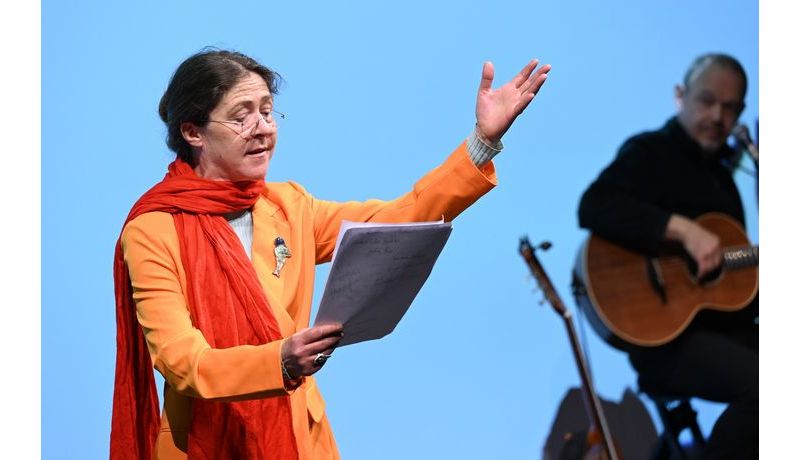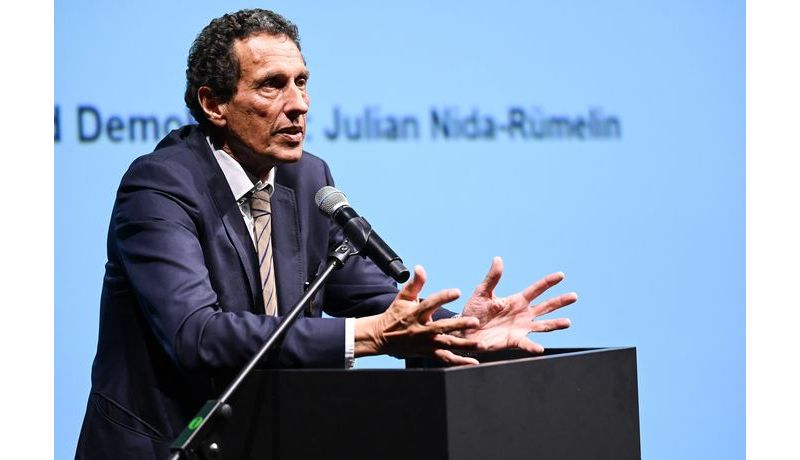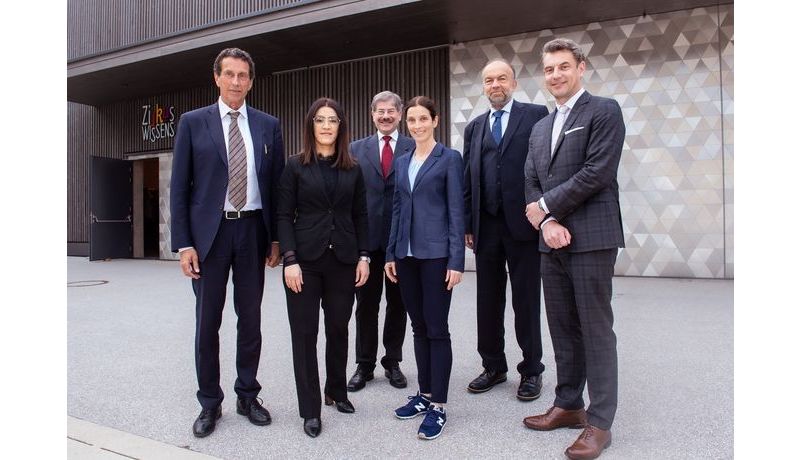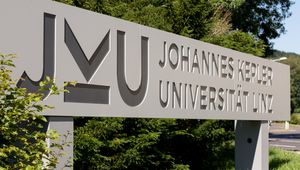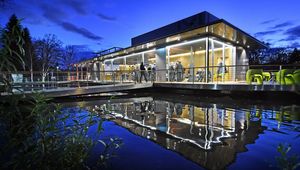Climate change and digitalization are among the many challenges facing society today.
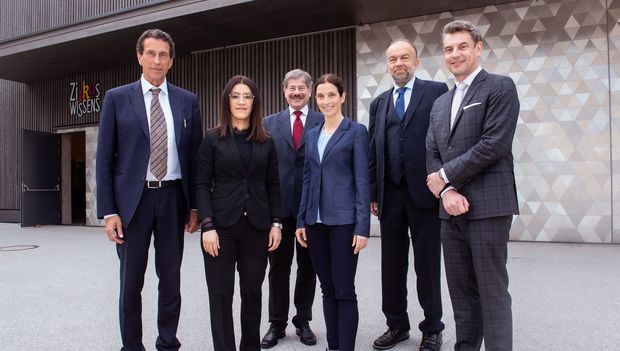
How can we manage all of this simultaneously and shape our future in a more sustainable way? Together with its new School of Social Sciences and Humanities (SSSH), the Johannes Kepler University Linz intends to address this question by pooling its expertise in the areas of social sciences, economics, and humanities, thereby also underscoring its origins as a university of social sciences, economics, and business. Yesterday's official opening at the JKU’s Circus of Knowledge welcomed special guest Julian Nida-Rümelin, a leading philosopher of our generation.
In stark contrast to forecasts predicted in the 1990s (keyword, "The End of History" by Fukuyama), today's societies are transforming at an almost breathtaking speed. We are facing very different transformations, each with its own set of factors: Climate change, advancing digitalization, the Coronavirus pandemic, increasing urbanization, and the current financial crises, just to name a few. This is nothing new; on the contrary, society is always undergoing transformation. In the past, and right now in the present, social sciences, cultural studies, and humanities hold the potential to describe, understand, and explain these social transformations in all of their complexity, contributing significantly to our understanding as to how we can sustainably shape our society.
A Focus on Society in Transformation
The JKU School of Social Sciences and Humanities focuses on "society in transformation", along with the complex relationships between global commodity chains, technical innovations, civil society movements and/or (un)just labor practices, giving the JKU a unique edge in this field.
JKU Rector Meinhard Lukas remarked: "The School of Social Sciences and Humanities is also expected to contribute significantly to the university-wide research focus on 'Digital Transformation. Digital platforms, such as Facebook, Instagram and Twitter, have changed public discourse dramatically, in fact, the public sphere as a whole, as a condition precedent when it comes to making democratic decisions." The great German philosopher and sociologist, Jürgen Habermas, made this abundantly clear in his 2021 book titled ‘Ein neuer Strukturwandel der Öffentlichkeit und die deliberative Politik’, he said. "Founded in 1966, the JKU was very consciously established as university for social and economic sciences. In this regard, it is even more important for the JKU right now to put an exclamation point on that fact. Along with the School of Social Sciences and Humanities and the Linz Institute of Transformative Change (LIFT_C), the JKU aims to become a pioneer in transformation research."
Dean Helmut Pernsteiner added: "The SSSH’s educational and research activities focus on transformation from different perspectives, ranging from historical and philosophical perspectives, political science, and sociology to socio-economics. The new School will apply a highly interdisciplinary approach within the Faculty and its existing Schools, as well as across faculties. In addition, there are many opportunities to interact with the Linz Institute of Technology (LIT)."
The SSSH serves to strengthen the thematic, professional and organizational aspects of social and cultural sciences, both in education and in research, based on four pillars: educational development, supporting research, creating a methods center, and being more socially engaged ("Third Mission").
A Festive Grand Opening
The opening ceremony for the new School took place yesterday at the JKU’s Circus of Knowledge with JKU Rector Meinhard Lukas, Univ. Prof. Helmut Pernsteiner (Dean of the Faculty of Social and Economic Sciences), Univ. Prof. Julian Reiss (head of the JKU Institute of Philosophy and Philosophy of Science), State Parliament member Elisabeth Manhal (representing Governor Thomas Stelzer), and Councillor Arzu Büyükkal (representing Mayor Klaus Luger) in attendance. Over 120 invited guests enjoyed a diverse program that explored "Society in Transformation" from academic, philosophical, and cultural perspectives. A presentation titled "Digitalisierung und Demokratie" by German philosopher, author, and former State Minister Julian Nida-Rümelin, poems read by actress Anne Bennent, along with musical accompaniment, concluded the program.
JKU Matrix Structure
In addition to the JKU’s 4 faculties comprising of some 140 institutes, the modern matrix structure was introduced in 2015, marking the start of creating the new JKU school. There are now five JKU Schools (the Linz Institute of Technology, the Linz School of Education, the JKU Business School, the Kurt Rothschild School of Economics and Statistics, and now the new School of Social Sciences and Humanities). All of the schools' missions in education and research including working together in an interdisciplinary manner and supporting a strong network. In addition, a concept for the university-wide Linz Institute of Transformative Change (LIFT_C) was launched in 2021.
Photos (free of charge):
Photo 1: Julian Nida-Rümelin, Arzu Büyükkal, Helmut Pernsteiner, Elisabeth Manhal, Meinhard Lukas, Julian Reiss, l.t.r., photo credit: JKU
Photo 2: Julian Nida-Rümelin, photo credit: JKU
Photo 3: Anne Bennent, photo credit: JKU







